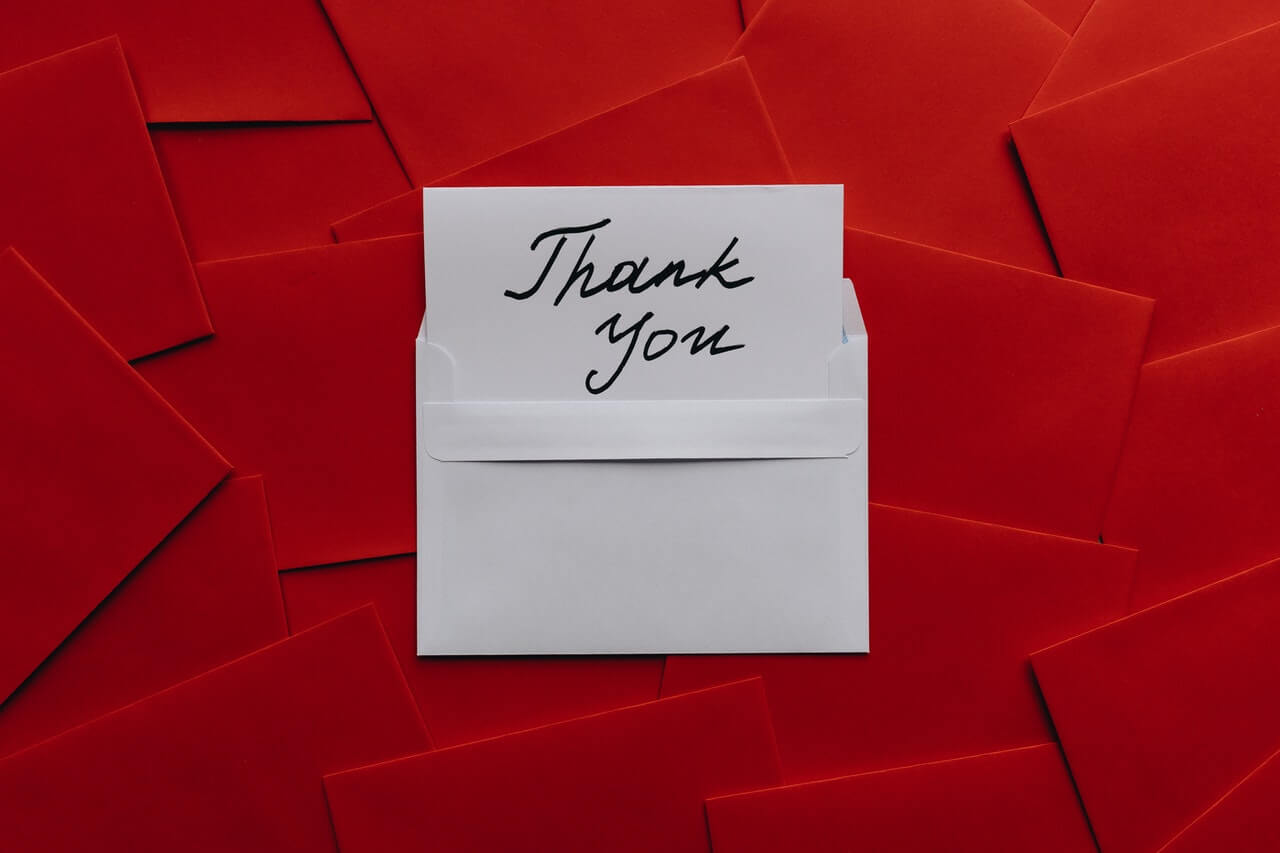Sending a thank you letter after an interview is a simple yet powerful way to leave a positive impression. It shows professionalism, reinforces your interest in the role, and can even influence a hiring decision. A thoughtful note sets you apart from other candidates who might skip this important step. In this guide, you’ll find sample thank-you letters, expert writing tips, and common mistakes to avoid to help you craft the perfect follow-up.
Importance of Sending a Thank You Letter After an Interview
Sending a thank you letter after an interview shows genuine enthusiasm for the role and strengthens your connection with the interviewer. It helps you stand out from other candidates who may not take the extra step, leaving a positive and lasting impression.
A well-crafted thank-you note also shows professionalism, respect, and strong communication skills. Beyond courtesy, it provides an opportunity to reinforce your key strengths, clarify anything discussed during the interview, and address any points you wish you had explained better. This slight gesture can have a big impact on your candidacy.
Best Practices for Writing a Thank You Letter
To leave a lasting impression, it’s crucial to send your thank you letter within 24 hours of your interview. Acting quickly shows professionalism and keeps you fresh in the interviewer’s mind. Keep your message concise and personalized, avoid generic templates that sound like they could apply to any company or role.
Mention specific highlights from your conversation, such as a project you discussed or a particular value the company emphasizes. This shows active listening and genuine interest. Reaffirm your enthusiasm for both the position and the company, making it clear why you’re excited about the opportunity.
Finally, proofread your letter carefully. Grammatical errors or typos can undo the positive impression you made during the interview. A well-written, thoughtful thank you note reinforces your attention to detail and your commitment to the role.
Structure of an Effective Thank You Letter
An effective thank you letter should follow a clear and professional structure to leave a lasting impression. If you’re sending an email, start with a straightforward subject line, such as “Thank You for the Interview – [Your Name].”
Begin the letter with a polite greeting, addressing the interviewer by name (e.g., “Dear Mr. Smith” or “Hi Ms. Johnson”). In the opening paragraph, immediately express your gratitude for the opportunity to interview and for their time.
In the middle paragraph, reference a specific topic or moment from the interview that resonated with you, this shows attentiveness and genuine interest. This could be a project they mentioned, a team value they highlighted, or a challenge you’re excited to help solve.
For the closing paragraph, restate your enthusiasm for the role and the company, and briefly mention that you look forward to any next steps. End with a formal sign-off such as “Best regards,” or “Sincerely,” followed by your full name.
Email vs. Handwritten Thank You Notes: Which Is Better?
Choosing between an email and a handwritten thank you note depends largely on the company culture and timing. An email thank you is appropriate when you want to respond quickly, ideally within 24 hours of the interview. It’s especially suitable for fast-paced industries like tech, marketing, or startups where decisions are made rapidly.
A handwritten thank you note can leave a memorable impression in more traditional industries such as law, finance, or academia. It shows extra thoughtfulness and effort but takes longer to arrive, which may not be ideal if the company is moving quickly with hiring decisions.
Emails are fast, easy to personalize and ensure your message reaches the interviewer immediately. Handwritten notes feel more personal and can help you stand out, but they risk arriving too late. Overall, many candidates choose to send an immediate email and follow up with a handwritten note for an extra touch.
Sample Thank You Letters After an Interview
Choosing the right tone for your thank you letter can make a strong impression. Here are a few examples you can adapt based on the situation:
- Formal Thank You Letter Example (for corporate roles): “Dear [Interviewer’s Name], thank you for the opportunity to discuss the [Job Title] role. I’m excited about the possibility of contributing to [Company Name] and appreciate your time and insights.”
- Casual Thank You Email Example (for startups or creative industries): “Hi [First Name], thanks so much for chatting with me about the [Role]! I’m really excited about what you’re building at [Company] and would love to be part of the team.”
- Group Interview Thank You Letter Example: “Dear Team, thank you all for taking the time to meet with me. It was great to hear different perspectives about [Company/Role], and I’m even more excited to join.”
- Second Interview Thank You Letter Example: “Dear [Interviewer’s Name], thank you again for the second meeting. Our discussion further confirmed my strong interest in joining [Company Name] and contributing to your goals.”
- Thank You Letter Example When You Forgot to Say Something Important: “Dear [Interviewer’s Name], thank you for the interview. I also wanted to briefly add that my experience in [specific skill] would directly support [Company Goal or Project].”
Thank You Letter Templates You Can Customize
Using customizable thank you letter templates can save you time while ensuring your message sounds polished and professional. A simple fill-in-the-blank structure helps you quickly plug in personal details like the interviewer’s name, the role you discussed, and specific highlights from your conversation.
Here’s a basic structure you can adapt:
“Dear [Interviewer’s Name], Thank you for meeting with me regarding the [Position Title] role. I especially enjoyed learning about [specific topic discussed]. Our conversation confirmed my excitement about joining [Company Name]. I look forward to the opportunity to contribute to [Company Goal or Value].”
When adapting templates, always consider the company culture. For example, use a more formal tone for corporate settings and a friendly, conversational style for startups or creative industries. Mentioning something specific from the interview also helps your letter feel genuine rather than templated.
Common Mistakes to Avoid in Thank You Letters
One of the biggest mistakes is sending a generic, copy-paste thank you letter. Recruiters can easily spot a message that lacks personalization and effort, making it less impactful. Instead, take the time to reference specific points from your interview.
Being too informal or overly casual is another common pitfall. Even if the interview was relaxed, your thank you note should maintain a professional tone to reinforce your credibility. Forgetting to proofread can seriously hurt your chances. Spelling errors, grammatical mistakes, or sloppy formatting can leave a poor final impression after an otherwise strong interview.
Timing also matters, waiting too long to send your thank you letter can make it seem like an afterthought. Aim to send it within 24 hours while you’re still fresh in the interviewer’s mind. Finally, avoid focusing solely on yourself. A strong thank you letter should balance gratitude with a focus on how you can meet the employer’s needs and contribute to their success.
What to Do If You Don’t Hear Back After Sending a Thank You
If you haven’t heard back a week after sending your thank you letter, it’s appropriate to send a polite follow-up email. Keep your tone professional and positive. Remember, hiring processes often take longer than candidates expect due to internal reviews or scheduling delays.
Ideally, you should wait about 7 to 10 business days after your interview before following up. If the interviewer mentioned a decision timeline during the interview, use that as your guide for when to reach out.
Here’s a sample follow-up email you can adapt:
Subject: Following Up on [Position] Interview
Dear [Interviewer’s Name],
I hope you’re doing well. I wanted to follow up regarding my interview for [Position] on [Date]. I remain very excited about the opportunity to join [Company] and contribute to [specific goal or project discussed]. Please let me know if there’s any additional information I can provide.
Best regards,
[Your Name]
Understanding that hiring decisions often take time will help you remain patient without seeming pushy. A well-timed, respectful follow-up keeps you on the employer’s radar without applying unnecessary pressure.
FAQ – After Interview Thank You Letters
Still wondering about the best practices for thank you letters after an interview? Here are answers to the most common questions candidates have:
Conclusion
Sending a thank you letter after an interview reinforces your professionalism, highlights your enthusiasm for the role, and leaves a lasting impression. It’s a simple but powerful step that can set you apart from other candidates. Even if the interview didn’t go perfectly or you’re unsure of the outcome, taking the time to send a thoughtful note shows respect and maturity.
A well-crafted thank you message keeps the door open for future opportunities and strengthens your professional network. No matter the result, always make it a habit to express gratitude after every interview. It’s a minor effort that can have a big impact on your career.
 Sections of this topic
Sections of this topic
















